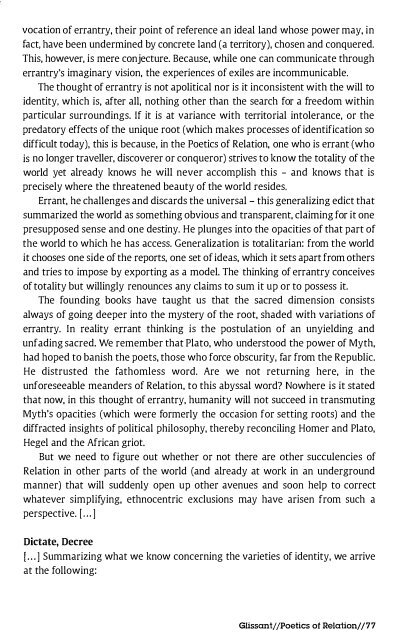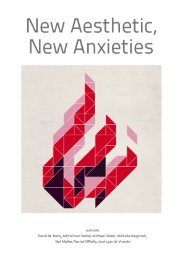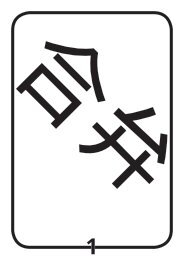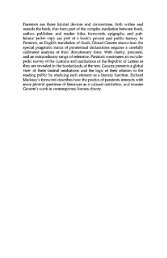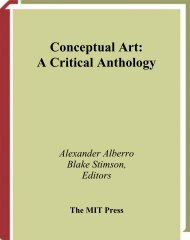Create successful ePaper yourself
Turn your PDF publications into a flip-book with our unique Google optimized e-Paper software.
vocation of errantry, their point of reference an ideal land whose power may, in<br />
fact, have been undermined by concrete land (a territory), chosen and conquered.<br />
This, however, is mere conjecture. Because, while one can communicate through<br />
errantry's imaginary vision, the experiences of exiles are incommunicable.<br />
The thought of errantry is not apolitical nor is it inconsistent with the will to<br />
identity, which is, after all, nothing other than the search for a freedom within<br />
particular surroundings. If it is at variance with territorial intolerance, or the<br />
predatory effects of the unique root (which makes processes of identification so<br />
difficult today), this is because, in the Poetics of Relation, one who is errant (who<br />
is no longer traveller, discoverer or conqueror) strives to know the totality of the<br />
world yet already knows he will never accomplish this - and knows that is<br />
precisely where the threatened beauty of the world resides.<br />
Errant, he challenges and discards the universal - this generalizing edict that<br />
summarized the world as something obvious and transparent, claiming for it one<br />
presupposed sense and one destiny. He plunges into the opacities of that part of<br />
the world to which he has access. Generalization is totalitarian: from the world<br />
it chooses one side of the reports, one set of ideas, which it sets apart from others<br />
and tries to impose by exporting as a model. The thinking of errantry conceives<br />
of totality but willingly renounces any claims to sum it up or to possess it.<br />
The founding books have taught us that the sacred dimension consists<br />
always of going deeper into the mystery of the root, shaded with variations of<br />
errantry. In reality errant thinking is the postulation of an unyielding and<br />
unfading sacred, We remember that Plato, who understood the power of Myth,<br />
had hoped to banish the poets, those who force obscurity, far from the Republic.<br />
He distrusted the fathomless word. Are we not returning here, in the<br />
unforeseeable meanders of Relation, to this abyssal word? Nowhere is it stated<br />
that now, in this thought of errantry, humanity will not succeed in transmuting<br />
Myth's opacities (which were formerly the occasion for setting roots) and the<br />
diffracted insights of political philosophy, thereby reconciling Homer and Plato,<br />
Hegel and the African griot.<br />
But we need to figure out whether or not there are other succulencies of<br />
Relation in other parts of the world (and already at work in an underground<br />
manner) that will suddenly open up other avenues and soon help to correct<br />
whatever simplifying, ethnocentric exclusions may have arisen from such a<br />
perspective. [ ... 1<br />
Dictate, Decree<br />
[ ... 1 Summarizing what we know concerning the varieties of identity, we arrive<br />
at the following:<br />
Glissantj jPoetics of Relation/ /77


